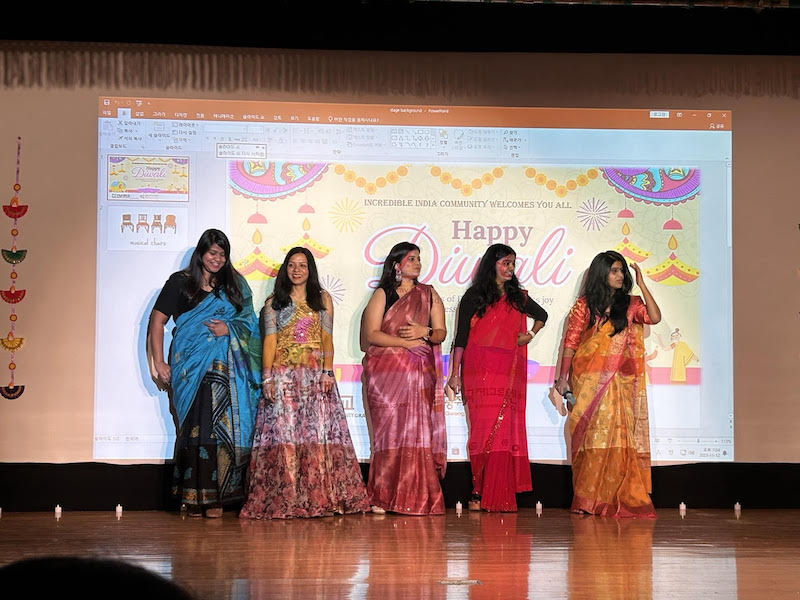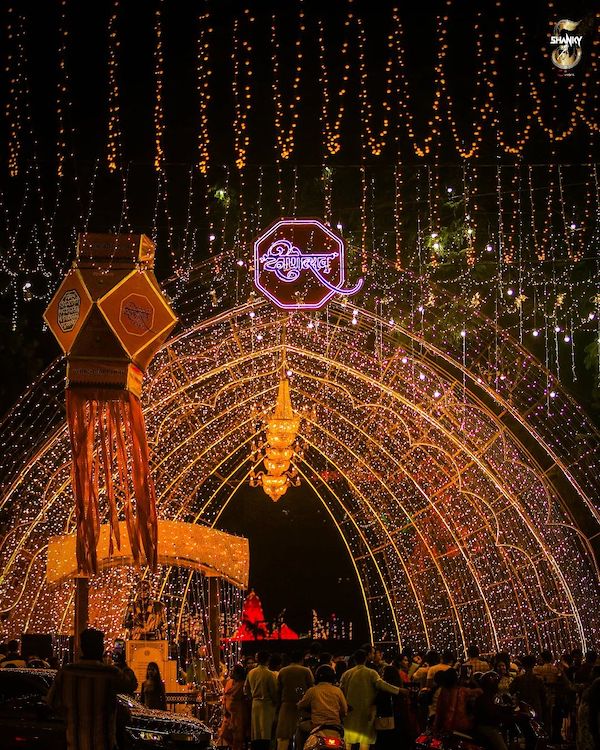Diwali – Festival of Lights
By Neha Bisht
Diwali (or Deepavali), the Festival of Lights, is one of the most widely celebrated festivals in India. It is a Hindu festival that is celebrated to mark the return of Lord Ram with his wife Sita and brother Lakshman after spending 14 years in exile. To welcome them, people decorate their homes and streets with flowers and lighting lamps. The festival mainly signifies the victory of light over darkness and good over evil. Diwali usually lasts for five days, and each day has its own significance, rituals, and customs. The dates of Diwali may vary each year as it is based on the Hindu lunar calendar, but it typically falls between October and November. Here is an overview of the five-day Diwali celebration:
Day 1: The beginning of the Diwali celebration starts with Dhanteras (Dhantrayodashi). It is associated with the worship of wealth and prosperity. On this day, people clean and decorate their homes and offer prayers to the Goddess Lakshmi and Lord Kubera, the deity of wealth. Buying gold, silver, or other valuable items is considered auspicious on this day.
Day 2: This day is celebrated as Naraka Chaturdashi / Choti Diwali. This day commemorates the victory of Lord Krishna over the Demon Narakasura. On this day, people take oil baths to cleanse themselves. Temples and homes are decorated with colorful rangoli, and evenings are marked by the lighting of lamps and bursting of firecrackers.
Day 3: This is the main day of the Diwali festival, symbolizing the victory of light over darkness and good over evil. On this day homes are cleaned, decorated, and illuminated with oil lamps, candles, and decorative lights. The Goddess Lakshmi and Lord Ganesh are worshipped in the evening to seek the blessings of prosperity, happiness, and wealth. Firecrackers are lit to celebrate the triumph of light.
Day 4: This day is celebrated as Govardhan Puja (Padwa). Govardhan Puja commemorates the lifting of the Govardhan Hill by Lord Krishna to protect the people of Vrindavan. On this day, the Devotees create an annakut (a mountain of food) as an offering to Lord Krishna. Cow worship is an integral part of this day. In some regions, this day is also celebrated as Padwa, symbolizing the love between spouses.
Day 5: This day, known as Bhai Dooj, is celebrated to signify the bond between brothers and sisters. On this day, sisters perform aarti (rituals of worship) for their brothers, applying a tilak, or marking on their foreheads. Brothers give gifts to their sisters as a token of love and protection. Families come together for a festive meal.

Besides these customs, Diwali is also considered a time for new beginnings and a fresh start. It is a time to let go of negativity and embrace positivity. It is also celebrated as a harvest festival in some regions of India. Farmers express gratitude for the bountiful harvest and seek the blessings of deities for future prosperity. Overall, the Diwali celebration is a time of joy, socializing, strengthening familial bonds, feasting, and religious observances. The exchange of gifts and sweets symbolizes the spirit of giving and sharing happiness with others. It reflects the rich cultural and spiritual heritage of India, emphasizing the values of light, prosperity, and the victory of good over evil.
Diwali Celebration in Gwangju: Since Diwali is a five-day festival, we cannot perform all the rituals here. However, the Indian community in Gwangju did its best to celebrate the biggest festival of India, Deepawali, at Chonnam National University (CNU). The celebration here was organized as a means to compensate for family separation experienced by folks who are far away from their loved ones, making it similar to Chuseok. The event aimed to foster social gatherings for people from different countries, showcasing the ideology of universal inclusion. The event was attended by more than 150 people, including Indian students from CNU, GIST, and Chosun University, in addition to local working professionals from India, plus Korean and other foreign students. The event was managed by CNU Indian students with the help of CNU’s Office of International Affairs (OIA), the CNU Graduate School, and the Gwangju International Center (GIC).
Here, the Diwali festival was celebrated in quite a different way. The celebration included dance, songs, and fashion shows exhibiting performances from different regions of India followed by intermittent fun activities. The decoration team beautifully decorated the place with colors using lamps and rangoli to display the aura of Diwali. The celebration was concluded by presenting gift to all participants, snapping group pictures, and providing delicious Indian food packages. The Indian sweet laddu was hand prepared by CNU students. The event was amazing, cheerful, and memorable, all thanks to the hard work of the organizing committee. I, on behalf of the Indian community, would like to thank CNU-OIA for providing the venue for the event. I would also like to say thanks to the CNU Graduate School and the GIC for providing funding.

Personally, I also performed some rituals at my home by putting up home decorations with lights and illuminating candles, worshipping the Goddess Lakshmi, and making some traditional food. I hope the Indian community in future will organize more of such events. I really thank all the committee members for their constant hard work to make this event joyous and successful.
The Author
A native of India, Neha Bisht is pursuing her Ph.D. research at Chonnam National University’s Department of Material Science and Engineering. She loves to meet new people and make new friends. She wants to explore the whole world and learn more about the traditional and cultural differences across the globe. She always likes to contribute to the well-being of society in whichever way she can.





